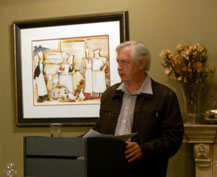Latest News Archive
Please select Category, Year, and then Month to display items
16 April 2024
|
Story Anthony Mthembu
|
Photo Supplied
 Melanie Ridgard celebrates receiving a Master of Business Administration (MBA) at the graduation ceremony held at the UFS Bloemfontein campus on 19 April 2024.
Melanie Ridgard celebrates receiving a Master of Business Administration (MBA) at the graduation ceremony held at the UFS Bloemfontein campus on 19 April 2024.
In the realm of self-development, few stories are as inspiring as that of Melanie Ridgard, the Interim Administration and Events Coordinator at the South African Research Chair in Industrial Development (SARChI-ID) at the University of Johannesburg (UJ). Ridgard’s forthcoming graduation with a Master in Business Administration (MBA) on 19 April 2024 from the University of the Free State (UFS) marks not only a personal triumph but also a testament to the transformative power of higher education.
Reflecting on her journey, Ridgard shares, “This moment signifies a culmination of rigorous studying, dedication and perseverance in mastering business fundamentals, leadership skills and strategic thinking.” Her pursuit of an MBA stemmed from a pivotal moment in her career when she was promoted at the Centre for Teaching and Learning (CTL) at UFS. Tasked with leading a group of young people Ridgard recognised the need to augment her knowledge to effectively guide her colleagues. The MBA became her vehicle for professional growth, extending beyond a mere qualification to a profound transformation of her leadership capabilities.
“Attaining an MBA milestone represents a transformative experience that has shaped my thinking to make impactful contributions in any future landscape,” Ridgard explains. Her experience not only enhanced her strategic acumen but also deepened her understanding of organisational dynamics. She acknowledges the pivotal role played by the UFS Business School in nurturing her journey towards academic and personal success.
What to expect from Ridgard
Looking ahead, Ridgard’s commitment to continuous learning remains unwavering. Selected as one of five MBA students to address the 17th International Business Conference (IBC) in September 2024, she eagerly anticipates the opportunity to share insights on her work titled, “Next-Gen Integration: Navigating the Onboarding Maze for Gen Z in Today's Workplace.” Despite her current responsibilities at UJ, she harbors plans to pursue a PhD in the near future.
Amidst her ambitious pursuits, Ridgard remains grounded, prioritising the celebration of her MBA achievement. ‘’As everyone dreams about it, I just want to walk over that stage in a black gown and a hood on my head with my loved ones cheering me on,’’ she shared.
Ridgard’s journey serves as a beacon of inspiration, exemplifying the transformative potential of education and the enduring impact of determined leadership. Her story reminds us that true leadership is not merely about reaching milestones but also about empowering others and embracing continuous growth.
Afrikaans place names were not only given by Afrikaner people, says professor.
2012-09-25
 |
Prof. Peter Raper delivering his lecture on South African place names.
25 September 2012 |
Prof. Peter Raper, honorary professor at the Department of Linguistics and Language Practice, delivered a public lecture in Clarens earlier this month. The theme of the lecture was “From Stone Age to GPS: The fourth edition of the South African Place Names Dictionary”.
Prof. Raper shared the historical development of the project as well as the challenges and other interesting observations associated with the topic. He elaborated on the dramatic change in the focus of his research on place names in South Africa.
It was previously assumed that all of the Afrikaans place names were given by the Afrikaner people and that changing these place names was consistent with the mandate of the South African Geographical Names Council (SAGNC) to transform place names. Prof. Raper said more in-depth research revealed that a significant number of place names are actually translations of original San names – into Afrikaans, Khoi and the Bantu languages. He told the audience that given the constitutional stipulation that no cultural group’s heritage may be removed, this discovery calls into the question the modus operandi of the SAGNC.
Prof. Raper’s lecture was part of the conference programme of the Third International MIDP IV Symposium that took place on the Qwaqwa campus. The MIDP (Multilingual Information Development Programme) is a project sponsored by the Province of Antwerp. The theme for this year’s symposium was “Multilingualism for Empowerment” and was presented in collaboration with the University of Antwerp.